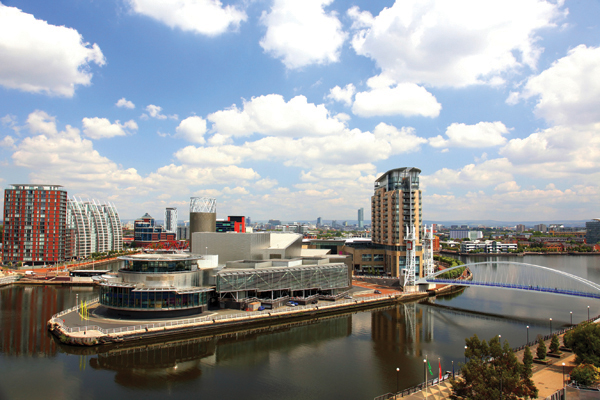
David Hytch, Information Systems Director at the Greater Manchester Public Transport Executive, considers just where congestion pricing schemes should sit in transport planners' hierarchy of options for managing demand.
On the face of it, Greater Manchester in England's proposed congestion charging scheme hit just about every sweet spot possible when it came to convincing the general public of the need for and benefits of such a venture. There was the promise from national government of almost £3bn-worth of investment in improvements to local infrastructure if the scheme went ahead; a predicted 20 per cent reduction in local traffic congestion from 2016; and a cordon scheme operational concept which was about as fair as it is possible to be. All of this was the subject of a comprehensive public consultation and information exercise which was effective enough to elicit 85,000 responses from within the local area and several hundred responses from groups which were up to 40 pages long. Yet still the public's response, when given the opportunity to decide on implementation on 11 December last year, was a resounding 'no'.Rather depressingly for those who remain convinced of the need for demand management, many of the people who went against the scheme, such as those who only use private vehicles at weekends, would have benefited directly from its implementation. That fact alone illustrates the gap between policy aspiration and reality. And Greater Manchester is far from unique; there is a growing list of municipalities across the globe whose proposed congestion management schemes have been given a bloody nose at the voting stage.
The experience has led the Greater Manchester Public Transport Executive (GMPTE) to come up with a radical response. By ring-fencing a significant proportion - 60 per cent - of funds already promised by central government for regional development and transport improvements and increasing the local council (amenities) tax, it is looking to make local residents pay directly and collectively, to the tune of £1.5bn, for the improvements which they have chosen not to pay for individually (see sidebar, 'A more direct approach' for more detail).
Due process
Although the scheme was ultimately rejected by the local populace, David Hytch, Information Systems Director at the GMPTE, maintains that his organisation's public consultation process went "extraordinarily well".The difficulty in the UK is that bodies going out to public consultation are not in the position of being easily able to clarify the representations of those with vested interests, he says.
"In doing so they are seen as entering into debate, whereas they're supposed to remain neutral," Hytch explains. "How the scheme would work in terms of privacy and so on was consistently misrepresented. Corrections and clarifications were fighting to be seen and heard against a backdrop of popular mythology and ill-founded belief." He makes clear that misrepresentations happened on both the 'Yes' and 'No' sides of the debate.
Proposed scheme
Greater Manchester had proposed a mixed scheme using tags for charging and automatic number plate recognition for enforcement. Technologically, it was a step on from London's Congestion Charge, in that it would have (for instance) allowed users to set up accounts and so on. It also differed from London's area charge by being a directional, peak-time cordon charge which operated only on weekdays: road users would be charged on inbound routes in the morning and on outbound routes in the evening. There were significant numbers of exemptions, such as for Blue (disabled) Badge holders and those on the UK's national minimum wage. Goods vehicles weighing more than 3.5t would have been exempt from the charge during the first year of operation and vehicles crossing the cordon multiple times (school runs, delivery drivers and so on) would only have been charged once in any charging period."I don't think there was any one reason why it was rejected," Hytch says. "It was down to a mix of the general political climate and a general distrust of politics, the economic climate at the time and some very focused arguments such as those relating to monetary and privacy issues.
"I never believed, when such a thing was suggested a few years ago, that there was ever going to be a national charging scheme in the UK. But local politics are not synonymous with the local Member of Parliament in terms of political impact. The whole experience has left me convinced that local political leadership is critical for any local scheme to succeed. If a decision is taken at the national level there is little chance of achieving local buy-in. Implementation and enforcement will be much more difficult as a result."
The last to go
The problem for Greater Manchester is that the issue of congestion won't simply go away.Hytch: "Manchester has built extra motorway capacity and made improvements to the local trunk roads and these have soaked up the extra traffic over the last six years. We've also seen some recent fall-off in traffic levels as a result of the current economic climate but once that starts to improve we'll see that come back. By 2016 there'll be an even greater congestion problem - six to eight years from now, radical demand management intervention in some form is inevitable.
"Road charging is a bit like the smart card, in that on the face of things it should really be a 'shoo-in' for transport applications.
"Go back seven or eight years, and many people were wildly enthusiastic about the arrival of the smart card and its potential effects on transport and travel habits. Some municipalities have made the smart card work. But it's taken years and it's happened because people have been looking to solve a problem and not just install a technology.
"There's an attitude, common everywhere but especially so in the UK, that road charging is the first choice when it comes to demand management. I'd argue that, as was planned for Greater Manchester, it should be used after other technological and informational options have been imposed and have significantly contributed towards tackling the issue.
We need to demonstrate to motorists that improvements to the road network have gone as far as they can. Only then do we restrict access. Literally, we need to leave people with nowhere else to go." One option when looking to influence opinion is to show those who will be the subject of a scheme how it will work in operation. This was the approach taken in Stockholm, for instance, where residents voted on whether on not to keep the city's congestion charging scheme after what was effectively a year-long 'dry run' of the system in place. However, the reality is that a whole load of political factors conspired to bring about that opportunity and it is likely to be far too complicated and expensive to do something similar elsewhere. At least with currently accepted charging and tolling technologies - Hytch sees possibilities in the consumer electronics and automotive sectors which could change the complexion of things entirely.
"Take the new iPhone, for example," he explains. "It has a compass application, basically a radio compass and a location-based service. If consumers are happy to trust a phone for such things, can they then not trust it for something else, such as charging or tolling? And as vehicles onboard systems progress, charging or tolling needn't be another black box addition. It can be just another application download which resides electronically within what's already onboard. Such things have to be an enabler in the future because they can also be linked to dynamic parking and other services."
Consensual undertaking
The top-slicing of funding which the GMPTE is now pursuing has not been tried anywhere else, according to Hytch. The Executive will be using the money to borrow in the market to raise revenue for local transport improvements.Getting 10 district authorities' plus Manchester's agreement to the strategy was no small political feat, as local transport schemes have given up discretion over their own funding for the greater good.
"The point is that it will work as a funding mechanism," Hytch continues. "It's not the £2.7bn we were promised from national government but it's a start.
"Once you've done all you can with technology, putting in place dynamic signals, junction control and so on you're left with very few palatable options. Measures such as increasing fuel prices would prove hugely unpopular and I am certainly not recommending them, however something radical will be required by those who want effective tools to influence public behaviour."
A more direct approach
The Greater Manchester Transport Fund will cost a total of £1.512bn, broken down as follows: £448m of Regional Funding Allocation, a £165m Department for Transport grant for the SEMMMS road scheme and £147m top-sliced from Greater Manchester's integrated transport block over nine years from 2010/11. Up to a further £775m will come from borrowings and third-party contributions.
It is planned to repay the borrowings by 2045 using revenues generated by two new local Metrolink extensions, a ring-fenced levy on the local Council Tax and other as-yet-unidentified local contributions (for instance, a Community Infrastructure Levy).











